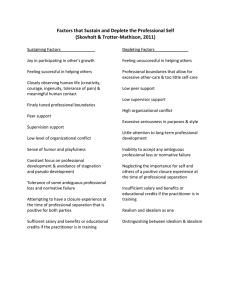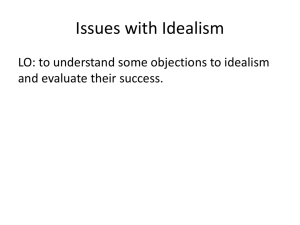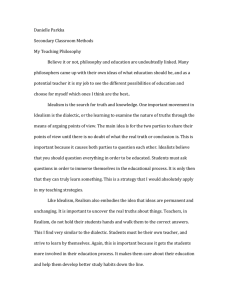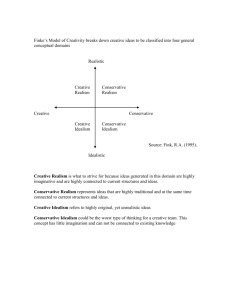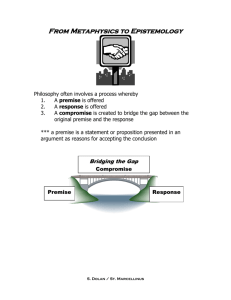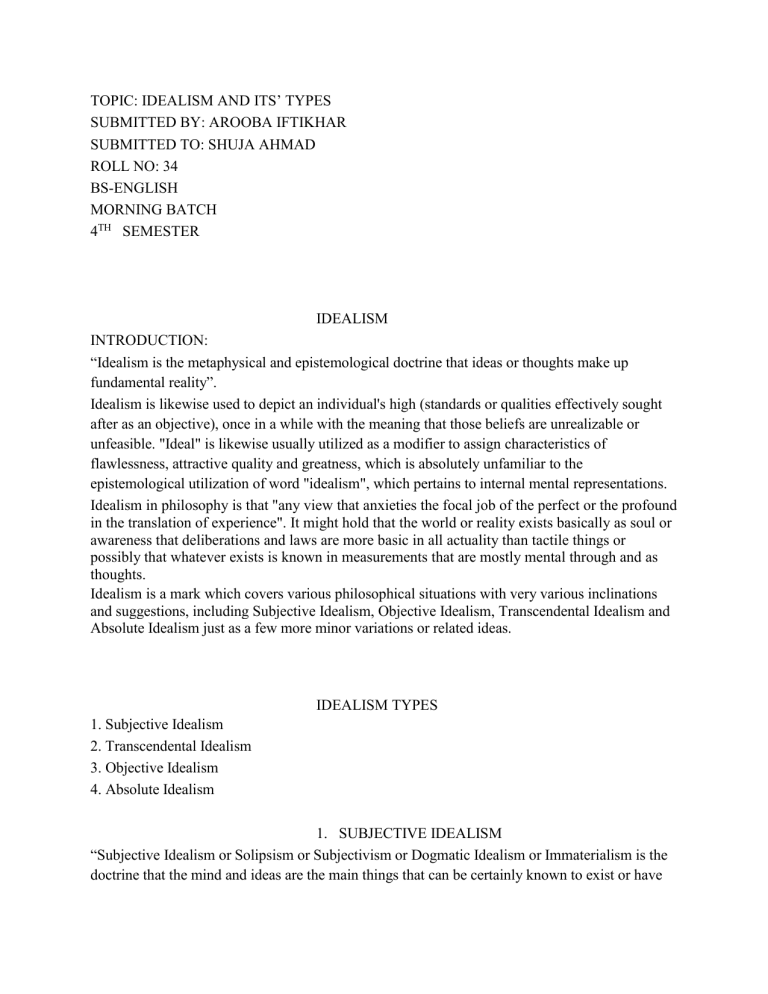
TOPIC: IDEALISM AND ITS’ TYPES SUBMITTED BY: AROOBA IFTIKHAR SUBMITTED TO: SHUJA AHMAD ROLL NO: 34 BS-ENGLISH MORNING BATCH 4TH SEMESTER IDEALISM INTRODUCTION: “Idealism is the metaphysical and epistemological doctrine that ideas or thoughts make up fundamental reality”. Idealism is likewise used to depict an individual's high (standards or qualities effectively sought after as an objective), once in a while with the meaning that those beliefs are unrealizable or unfeasible. "Ideal" is likewise usually utilized as a modifier to assign characteristics of flawlessness, attractive quality and greatness, which is absolutely unfamiliar to the epistemological utilization of word "idealism", which pertains to internal mental representations. Idealism in philosophy is that "any view that anxieties the focal job of the perfect or the profound in the translation of experience". It might hold that the world or reality exists basically as soul or awareness that deliberations and laws are more basic in all actuality than tactile things or possibly that whatever exists is known in measurements that are mostly mental through and as thoughts. Idealism is a mark which covers various philosophical situations with very various inclinations and suggestions, including Subjective Idealism, Objective Idealism, Transcendental Idealism and Absolute Idealism just as a few more minor variations or related ideas. IDEALISM TYPES 1. Subjective Idealism 2. Transcendental Idealism 3. Objective Idealism 4. Absolute Idealism 1. SUBJECTIVE IDEALISM “Subjective Idealism or Solipsism or Subjectivism or Dogmatic Idealism or Immaterialism is the doctrine that the mind and ideas are the main things that can be certainly known to exist or have any reality and that information on anything outside the psyche is ridiculous". Along these lines, objects exist by goodness of our view of them, as thoughts living in our mindfulness and in the awareness of the Divine Being or God. 2. TRANSCENDENTAL IDEALISM “Transcendental Idealism or Critical Idealism is the view that our experience of things is about how they appear to us (representations), not about those things as they are in and of themselves”. Transcendental Idealism, generally, does not deny that an objective world external to us exists, but argues that there is a supra-sensible reality beyond the categories of human reason which he called ‘noumenon’, roughly translated as the "thing-in-itself". However, we can know nothing of these "things-in-themselves" except that they can have no independent existence outside of our thoughts, although they must exist in order to ground the representations. Transcendental in certain regards constrained into it by thinking about that our insight has fundamental constraints, and that we can never know things as they truly seem to be, absolutely free of us. 3. OBJECTIVE IDEALISM “Objective Idealism is the view that the world "out there" is in fact mind communicating with our human minds”. It postulates that there is only one perceiver and that this perceiver is one with that which is perceived. It accepts common sense Realism (the view that independent material objects exist), but rejects Naturalism (the view that the mind and spiritual values have emerged from material things). According to Objective Idealism, the Absolute is the entirety of the real world: no time, space, connection or occasion ever exists or happens outside of it. As the Absolute likewise contains all prospects in itself, it isn't static, however continually changing and advancing. People, planets and even worlds are not independent creatures; yet part of something bigger, like the connection of cells or organs to the entire body. 4. ABSOLUTE IDEALISM “Absolute Idealism is the view is the view that all together for human motivation to have the option to know the world by any stretch of the imagination, there must be, in some sense, a character of thought and being else, we could never have any methods for access to the world and we would have no sureness about any of our insight". Like Plato numerous hundreds of years before him, Hegel contended that the activity of reason empowers the contemplated to accomplish a sort of the real world (to be specific self-assurance, or "reality as oneself") that negligible physical articles like rocks can never accomplish.
